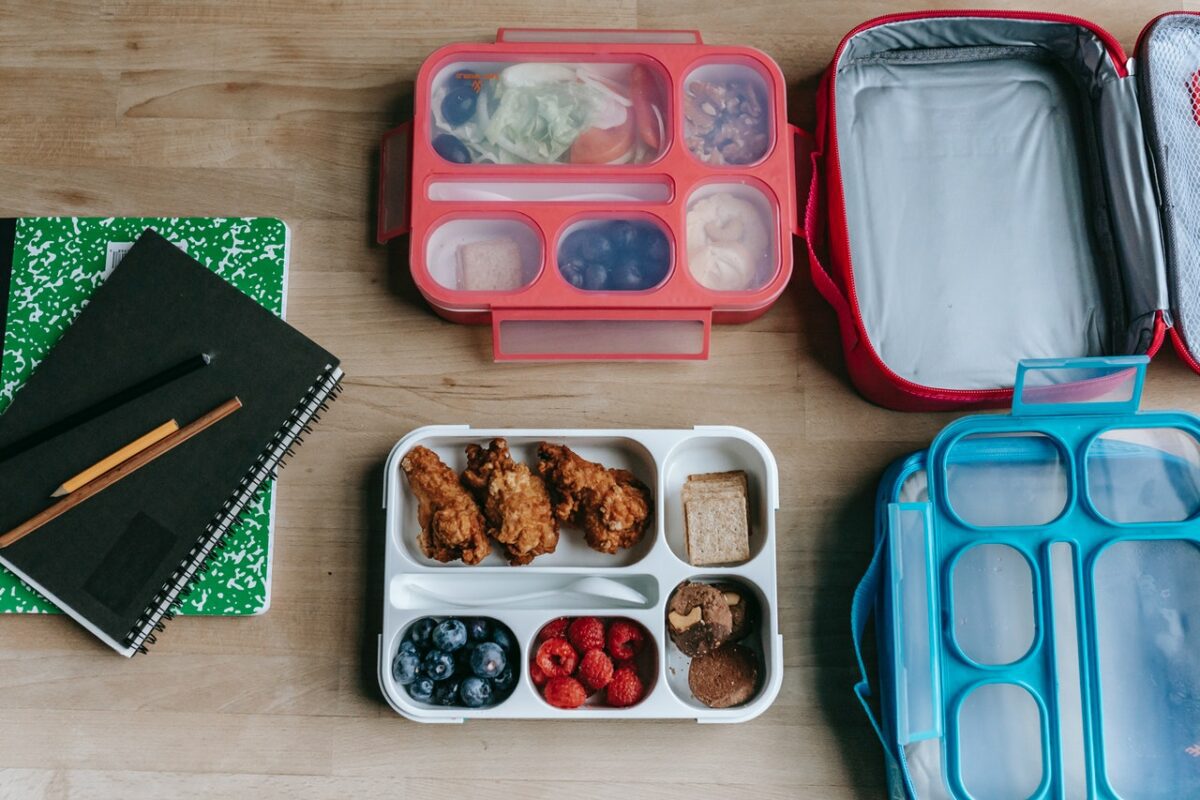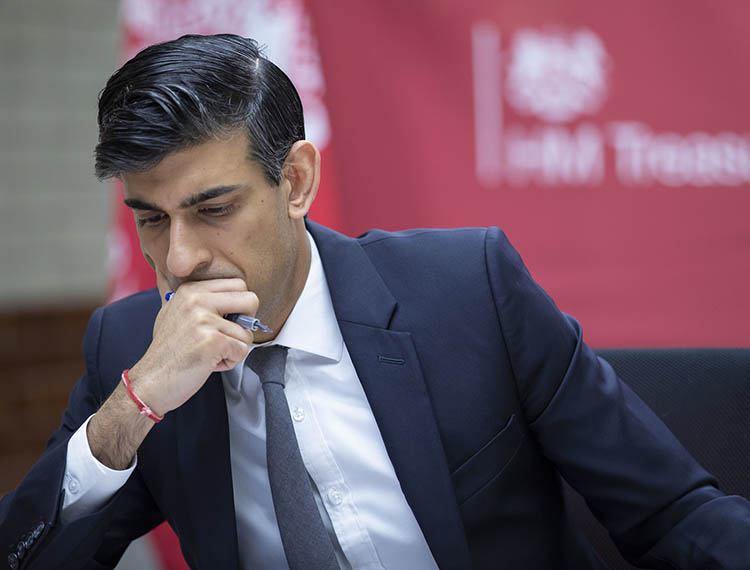School and Union leaders representing a million teachers and education specialists demand action on free school meals

School and Union leaders representing more than a million teachers, support staff and others working with children have written to the chancellor Rishi Sunak and the education secretary Nadhim Zahawi demanding free school meals are offered to all children in families receiving universal credit or equivalent benefits.
The demand from ten different unions and professional organisations follows a major survey from The Food Foundation carried out last month, which revealed that around 2.6 million children live in households that missed meals or struggled to access healthy food, meaning that a total of 17.2% of homes with children are affected. The same survey found levels of food insecurity in households with children have risen by 42% since the beginning of 2022.
The devolved governments of Scotland and Wales are committed to providing free school meals for all primary school children, as well as more generous breakfast provision. There has been no such commitment to offer the same opportunities to children in England. In England the threshold to get free school meals is a combined household income of £7,400 before benefits.
The current restrictive policy means just under two in five children living in poverty are not eligible for free school meals, according to the Child Poverty Action Group.
This group of around a million children in total, also miss out on holiday support in terms of access to the Governments HAF schemes which include a hot lunch, as well as access to benefits from the pupil premium, the grant given by the government to schools in England to decrease the attainment gap for the most disadvantaged children.
Numerous research projects have shown that good diet in childhood improves health, attainment and behaviour at school, as well as boosting lifetime productivity.
There is no other part of the school day where children are means tested to participate and campaigners argue that extending free school meal provision would demonstrate the government’s commitment to its levelling up agenda.
“Government urgently needs to reconsider the threshold used in England for free school meals so more children are protected by this vital safety net. Far too many of our most vulnerable families are not receiving the support they need and the situation is now critical with the current cost of living crisis.” said Jo Ralling, from The Food Foundation
“The ability to thrive and enjoy school should be the fundamental right of every child, but more and more of them are coming to school underfed or undernourished,” said Dr Nick Capstick, Chair of the School Food Review Board and headteacher at a Wiltshire primary school. “We are also seeing more of our pupils having time away from school because of illness and poor oral hygiene caused by inadequate diet. Schools are increasingly faced with the need to support and often feed young people whose families can no longer afford the right food at home. Universal free schools meals is a simple way of eradicating this situation.”
“The new data from The Food Foundation makes grim reading and we know from our own research that far too many families, identified by their schools as needing support, do not qualify for free school meals” said Stephanie Slater, Founder and Chief Executive at School Food Matters. “With so many children missing out on good nutrition we fully support the call to extend universal provision.”
Sector Response
Geoff Barton, General Secretary of the Association of School and College Leaders, said:
“We are very pleased to support the Food Foundation letter calling for free school meals to be offered to all children in families receiving universal credit or equivalent benefits.
“It is vital in general that free school meal provision is extended to more children but particularly so at this time because of the cost-of-living crisis which is pushing many families deeper into poverty. About one in five pupils in England are currently eligible for free school meals but we know that a larger proportion of children are classified as living in poverty – about 30 per cent – so a significant number of children in difficult circumstances are clearly missing out.
“Ensuring that all children who need this provision receive a free school meal is hugely important not only in terms of health but also education as children who are hungry are not in a fit state to learn.”
Letter to:
- The Rt Hon Rishi Sunak, MP, The Chancellor of the Exchequer
- The Rt Hon Nadhim Zahawi, MP, Secretary of State for Education
- Helen Whately, MP, Exchequer Secretary (HM Treasury)
Dear Ministers,
We represent over one million people working as teachers, school and trust leaders, support staff, and governors and trustees in the nation’s 24,400 schools. We are well placed to see the impact of the cost of living crisis on our 8.9 million pupils’ ability to learn and lead healthy lives.
Every single school professional is focused on ensuring that our most disadvantaged children are not left behind, in line with the levelling up agenda. To help us do that, we must make sure that every child has the nutrition they need to be able to learn and do well. Not doing so would undermine all the great efforts of the education workforce to tackle inequalities.
Every school day we see the benefits free school meals provide to those currently entitled. For many it is the only hot, nutritious meal they have in a day. A quality school meal helps improve children’s concentration and behaviour during lessons. We witness, first-hand, the effect they can have on improving school attendance, on children’s health, and academic performance.
However, the intensifying cost of living crisis means many more are now struggling to afford school lunches. We are seeing children falling into school meal debt, and there is a serious threat to take-up of meals and the viability of the catering service, not to mention risking the health and wellbeing of our pupils. We see the devastating reality of children coming to school unable to afford to buy lunch, because their family circumstances mean they fall outside the restrictive free school meal eligibility criteria. The Food Foundation’s latest data indicate an estimated 2.6 million children live in households that missed meals or struggled to access healthy food during April. Excluding so many vulnerable children is a real barrier to learning and must be urgently addressed.
Now is the right moment for the government to commit to an expansion of free school meals, providing a nutritional safety net that supports all children to learn and achieve. The clear solution to ensuring fairness and equity across our schools is to extend universal provision, as Wales and Scotland are now committed to deliver. But as an immediate first step, free school meal eligibility criteria need to be expanded to all families receiving universal credit (or an equivalent benefit).
We, as representatives of our nation’s school professionals, believe this is a quick, effective and highly targeted way of delivering on the levelling up agenda and will support schools in delivering vital educational outcomes for all children.
Yours sincerely,
Geoff Barton, General Secretary, Association of School and College Leaders (ASCL)
Dr Mary Bousted and Kevin Courtney, Joint General Secretaries, National Education Union (NEU)
Dr Nicholas Capstick, Principal of Drove Primary School, and CEO of White Horse Federation Trust and
Chair, School Food Review Working Group
Leora Cruddas, CEO, Confederation of School Trusts (CST)
Russell Hobby, CEO, Teach First
Emma Knight, CEO, National Governance Association (NGA)
Christina McAnae, General Secretary, Unison
Stephen Morales, CEO, Institute of School Business Leadership (ISBL)
Dr Patrick Roach, General Secretary, NASUWT
Steve Taylor, Chair, Queen Street Group and CEO, Cabot Learning Federation
Paul Whiteman, General Secretary, National Association of Head Teachers (NAHT)












Responses